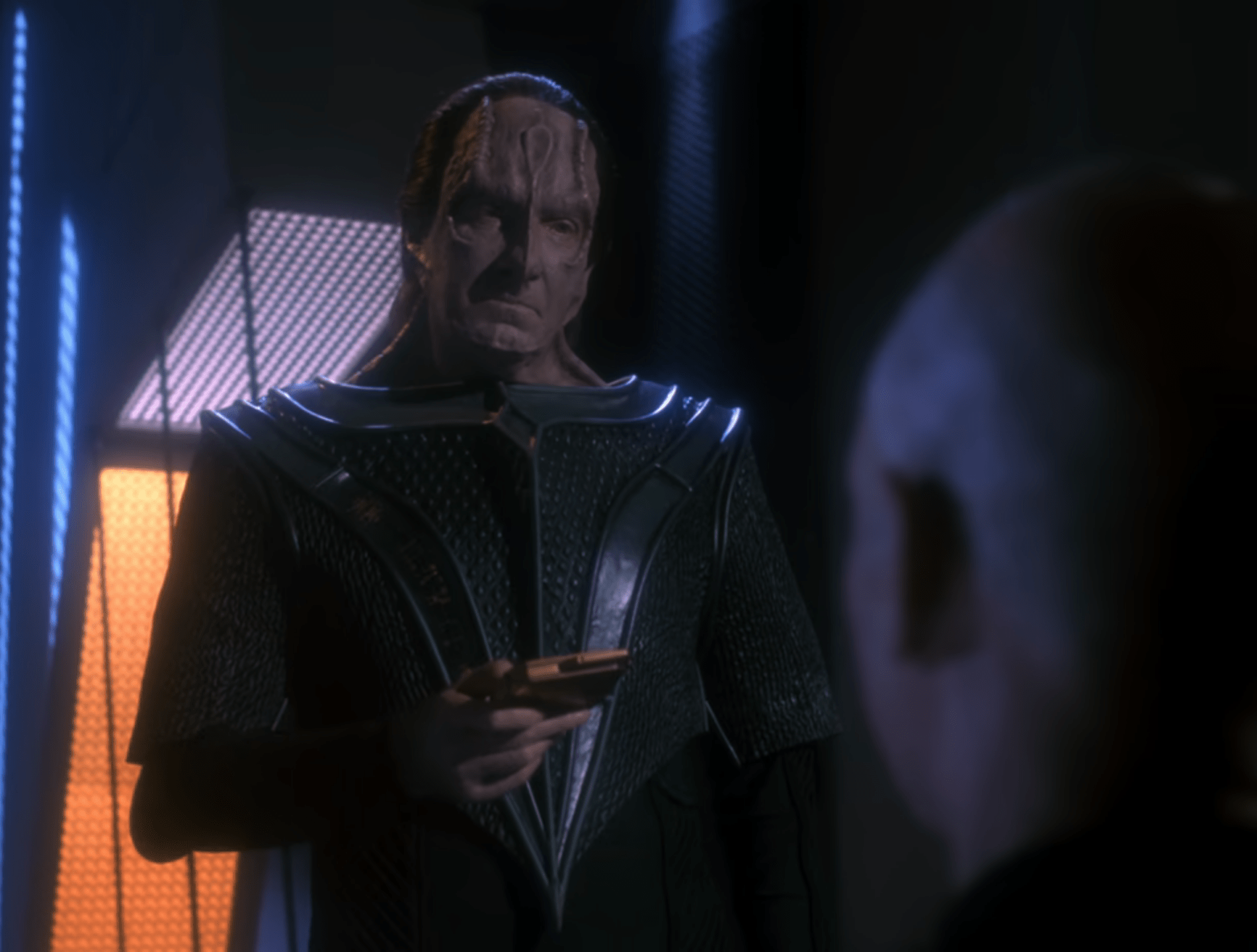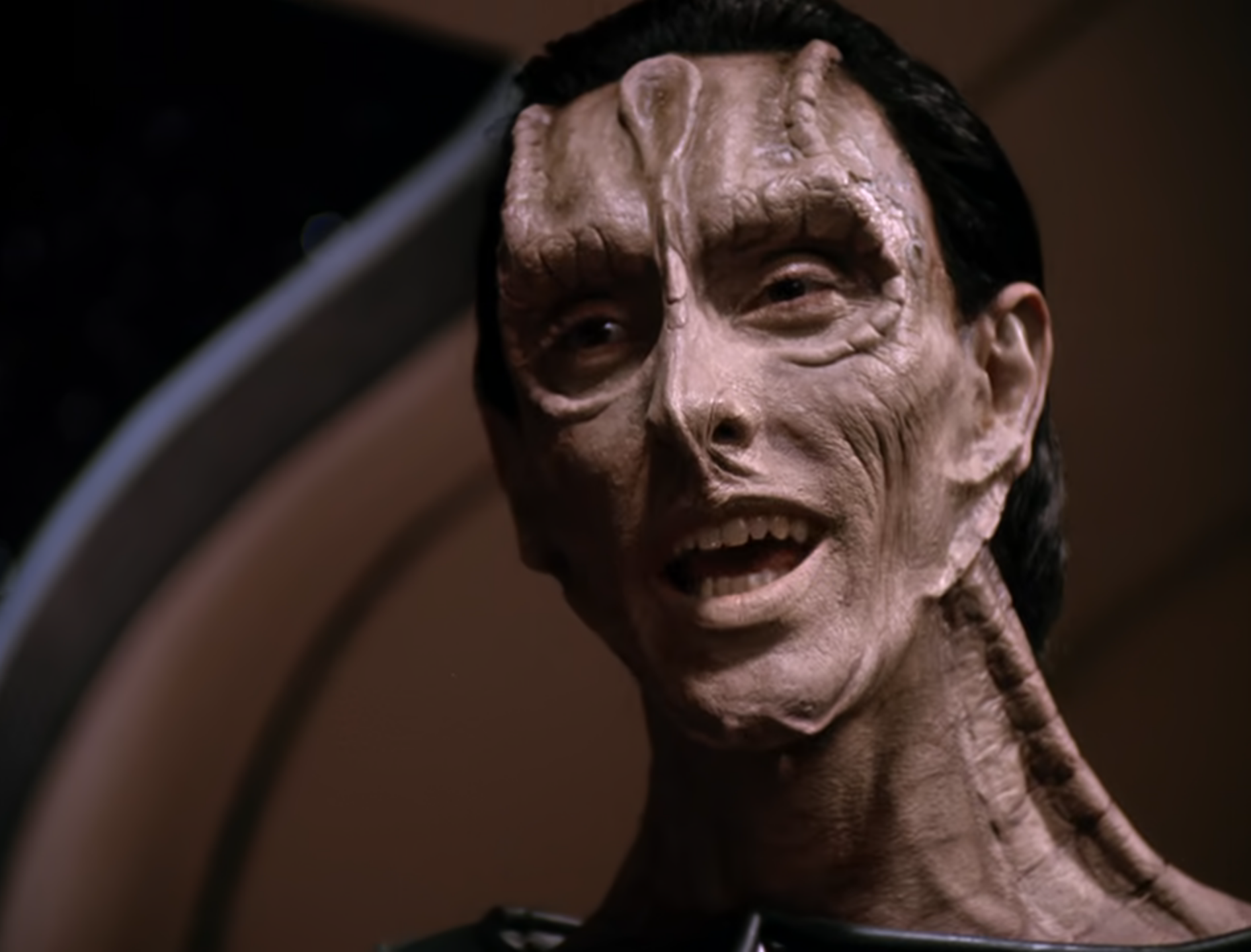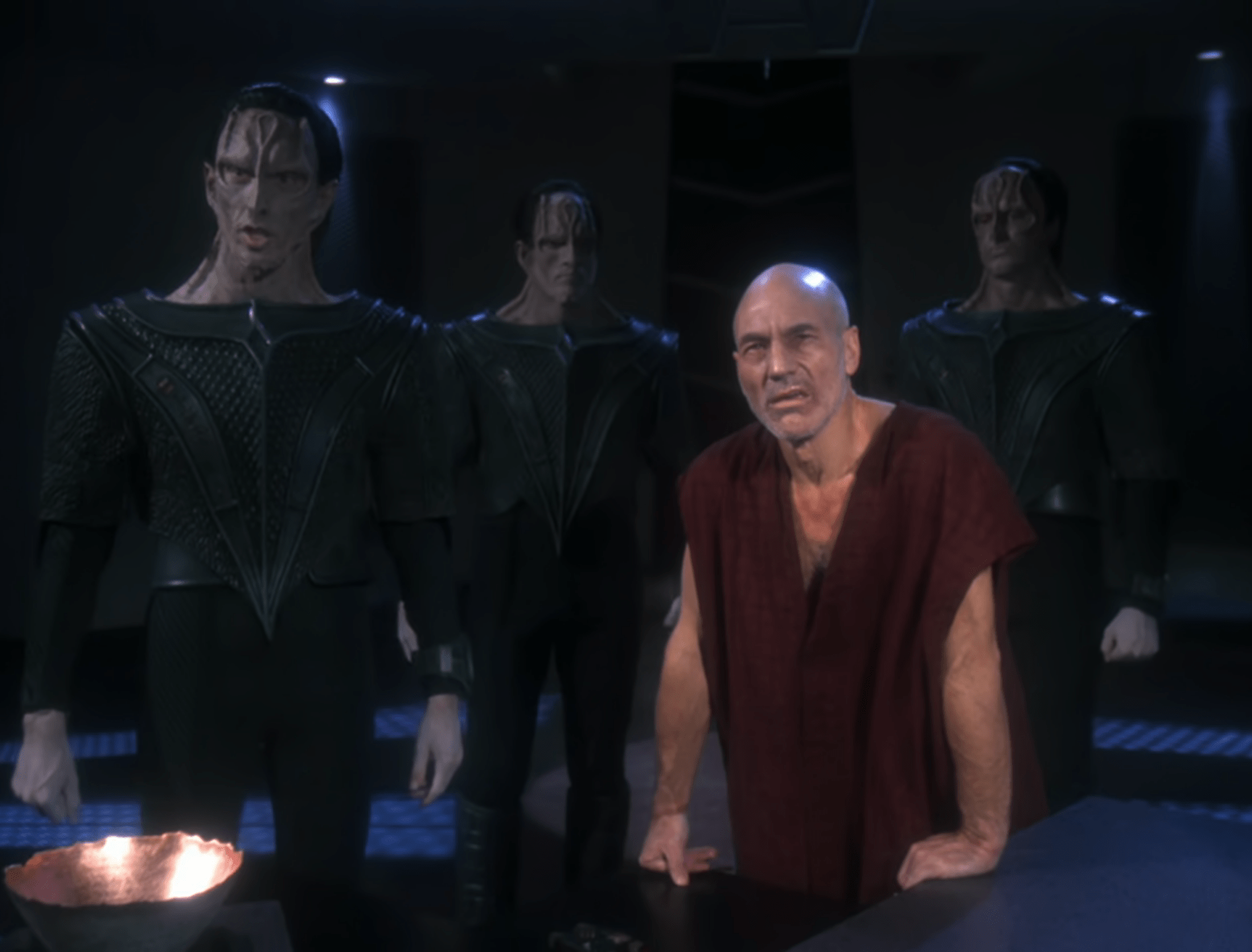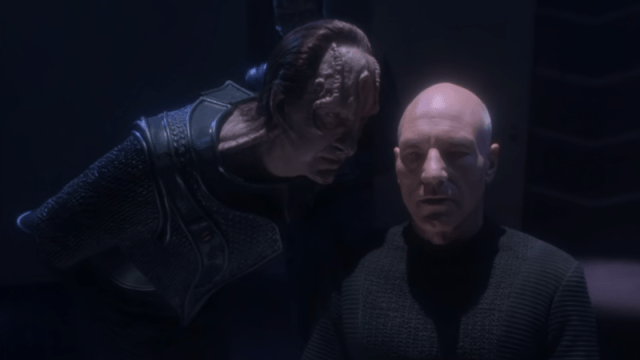David Warner, who sadly passed away earlier this week, is beloved for his villainous turns. From Time After Time to Time Bandits, from Tron to Batman: The Animated Series’ Ra’s Al Ghul, the actor’s legendary career is paved with them. But perhaps his finest hour on television comes from his third and final Star Trek role in The Next Generation.
“Chain of Command” sits as a two-parter in the middle of The Next Generation’s sixth season. It’s one of the show’s best, and beloved for a haunting turn by Patrick Stewart, playing a Picard who is captured and brutally tortured by the Cardassians — an interrogation lead by Warner’s sinister Gul Madred. He’s left as vulnerable as we perhaps ever see the great hero Jean-Luc Picard, who ends the story by admitting how close he came to giving up.

Picard is nearly broken by Warner’s Madred, who turns in a truly fascinating performance that catapults him into the top tier of TNG’s best guest stars. Madred is actually not in “Chain of Command” that much — he doesn’t appear until the climactic scene of the first episode, and the second intersperses his torture of Picard with the action back aboard the Enterprise, where replacement Captain Jellico (Ronny Cox) is attempting to strong-arm his way through negotiations with another Cardassian, Gul Lemec (John Durbin). But from the second Warner enters the scene, Madred is immediately captivating.
He glides around the dimly little office/torture room that becomes the primary stage of the back half of “Chain of Command,” barely entering the sharp pockets of light as he verbally and, sometimes technologically with an implanted device in Picard’s chest, needles the good captain until he is a writhing wreck. Madred’s presence is graceful and terrifying — Warner’s voice for the character almost barely a whisper, precise and controlled as he completely pulls Picard’s strings over and over. That’s really what makes Madred so compelling and creepy, beyond the fact he’s brutally torturing our hero: he’s a shade, meticulous and detailed but never brash and booming, dominance held by his complete and utter control, not just of Picard but of himself. There’s a single scene in which Madred breaks this facade — when Picard mocks his childhood upbringing as a starving orphan on Cardassia — but it’s only for a moment. Even then, as Picard celebrates discovering a gap in Madred’s armour, Warner’s subdued, imposing presence keeps him a threat until the episode’s very climax.

It’s a fantastic performance in isolation, but what makes Gul Madred truly shine as a character is that he’s not the only Cardassian villain of the piece. Although they barely share screen time save for a scene near the two-parter’s end, Gul Lemec is a vital foil to Madred that creates a greater whole, abstracted as what would be the hallmark of the Cardassians’ portrayal when they truly entered Trek’s spotlight in Deep Space Nine. Durbin’s Lemec is everything that Warner’s Madred is not — grand and pompous, sneering and theatrical. There’s almost an element of camp to Durbin’s turn, practically voguing about the Enterprise conference room as he spits demands and insults at Jellico, Troi, and Riker, hands dramatically splayed as they dance stroking from chair to chair. If Madred skulked in the shadows, Lemec leaps into the light, the embodiment of Cardassian haughtiness and arrogance.
They’re both fantastic performances in isolation, but in symbiosis they paint an incredible picture of what the Cardassians were capable of, as both beings and as characters for Star Trek to work with — the deadly, calculating sneaks, the pompous warriors. Even barely sharing the screen, Durbin and Warner’s dual roles feel like a performative dance, a duet of opposites, each contrast making the other performance shine just as strongly even as they juke away from each other. Durbin’s the proud, furious performance Lemec makes Warner’s choices as Madred feel all the more cold, calculated, and chilling, and in turn that subdued sinister performance makes Lemec’s rage and arrogance all the more potent.

I came back to “Chain of Command” last night in the wake of Warner’s passing expecting to remember his performance, and his alone — one of the all-time greats of Star Trek guest stars. But I was surprised in realising that it only hits hits its biggest heights thanks to as just as laudable performance in Durbin: two incredible actors setting the stage for what Cardassians could be, ready for them to ascend into Trek’s annals as one if its most fascinating societies just a few years later.
Want more Gizmodo news? Check out when to expect the latest Marvel and Star Wars releases, what’s next for the DC Universe on film and TV, and everything you need to know about House of the Dragon and Lord of the Rings: The Rings of Power.
